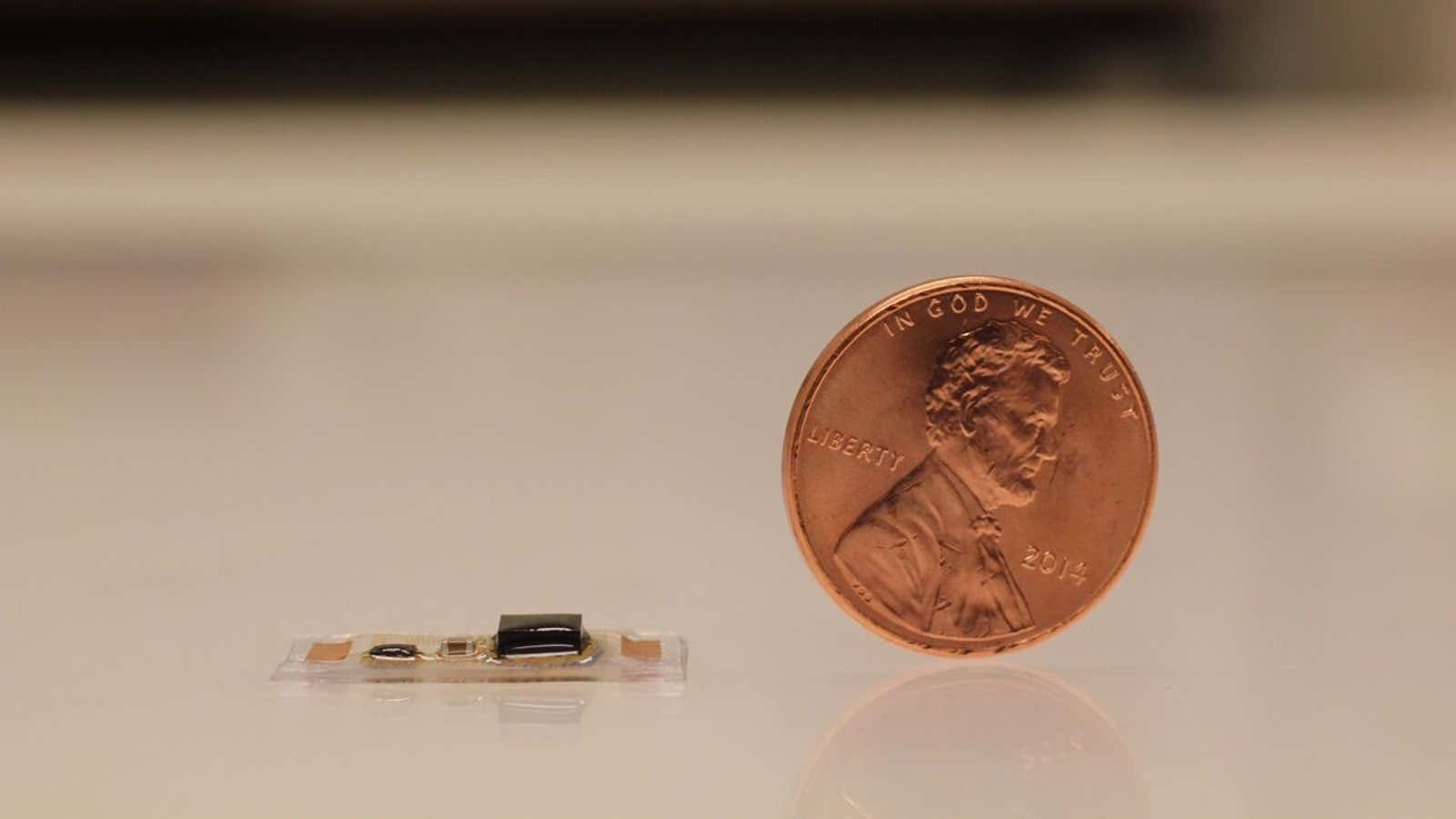Researchers have developed an electronic sensor that can stick to the skin like a temporary tattoo and give you round-the-clock feedback on your heart health.
The sensor, created by University of Colorado Boulder and Northwestern University scientists, latches onto the skin and monitors the wearer’s heartbeat by picking up sound waves as they move through body tissue and fluids. Essentially, it functions like a mini-stethoscope.
The device is made of sensors and electrodes sandwiched between silicon. This creates a soft shell that can stretch without impacting the device’s ability to function, and allows for sweat to evaporate.
Weighing roughly 200 milligrams (0.008 ounces), the 20-millimeter thick (0.8 inches) stick-on apparatus is able to detect subtle sounds and electrical signals throughout the body with sensors that have a range of 0.5 to 550 hertz (in conversation, men average at around 116 Hz and women at 217 Hz, the study notes. Humans can’t really hear under 20 Hz). For now, the device needs to be hooked up to a computer via a wire, but the team is working on connecting it to a smartphone via bluetooth.
“Epidermal electronics” like this sensor have the potential to provide precise and continuous health measurements, which could then lead to more informed diagnoses and care. For heart health in particular, the device’s measurements can ”yield important insights that complement those inferred from electrocardiography (ECG),” the researchers wrote in their study, which was published in Science Advances on Nov. 16. A sensor placed on the neck could parse pulse waves associated with arterial blood flow, for example. That could lead to rapid diagnosis of serious problems. The researchers tested this on a heart pump called a left ventricular assistive device by purposefully introducing a blood clot in the device; this changed the sound generated by the pump, and the stick-on sensor was able to detect the anomaly.
So far, the device has been tested on chickens ”and a very small group of people,” the researchers told the Verge. The wearable needs to be subjected to more testing before hitting the market.
The device’s proximity to the skin opens up a myriad of possibilities beyond tracking heart conditions, the paper’s authors said. Attaching it to your throat could produce more accurate speech recognition data, for example. This could be especially helpful in a noisy environment, where a regular microphone’s recording quality is degraded. The researchers suggest this could enhance communication in loud environments by first responders, ground controllers, or security agents.
In the future, the sensor could also work with human-machine interfaces. In a proof-of-concept demonstration, the researchers stuck the device on a person’s throat. They then used four voice commands—“left,” “right,” “up,” and “down,”—to control a Pac-Man game, with 90% accuracy. The same pre-programmed word detection system could be utilized to control drones or prosthetics.
